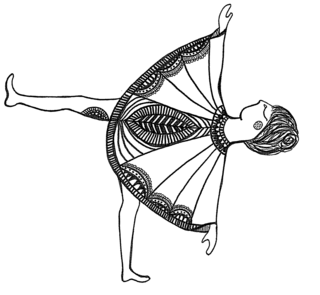Importance of Language in a yoga environement
Language is often something we take for granted. The use of it, the freedom to use how we like, a 'throwaway' comment, a swear word. Language is the main facilitator that enables us, as a species, to communicate and turn our ideas into the material.
So what about language in yoga?
Words also have many connotations to the individual receiving them, conjuring up; moods, thoughts, and feelings. Combined with our tone of voice, and body language, they become a powerful tool of self-expression. Sometimes our words can be misconstrue with an emotional response without intention in doing so. Events from the past, dual usage, can make a word have many meanings when being expressed to a group of people. As a yoga facilitator, I have to try to make sure that language doesn't become a barrier for practicing yoga, that the intention of the pose is fully realised and that no nerves are being touched. Of course, this is never 100% assured that something won't affect someone and its something I'm working on.Different people, different meaning.
Sometimes, the words don't translate or compute the same in peoples minds. Finding that the words 'stack your shoulders' or 'lengthen the back of the neck' can create a different meaning in different bodies. I feel that isolation of body parts and expressing how one range of movement can create a different effect to another helps people have a comparison. I find when I attend a class, I need to replay what the teacher has just said in my mind again in order to then make this adjustment or movement to my own body.Emotive words.
I think its important to recognise how and when an emotional response is triggered in a student. Then how to keep a level of support yet maintain the fluidity of the class. This can also be linked to releasing emotional storage from the body. Most of the time, it seems, people want to be left alone. They may come to you after the class, but during the actual process, time needs to be taken to know what exactly is going on and come to acceptance with the emotions coming up. This, of course, may take a lot longer than an hours class!Language off the matt.
The main thing to remember is that language in all environments is important. The way we express ourselves and emotions through words and how we can help to create clarity with our tone of voice. To be kind and show patience with our self-expression. Treating each word as a gift to create understanding. This is going to help people be able to open up more freely to take to you about their circumstances and create stronger bonds with friendships.